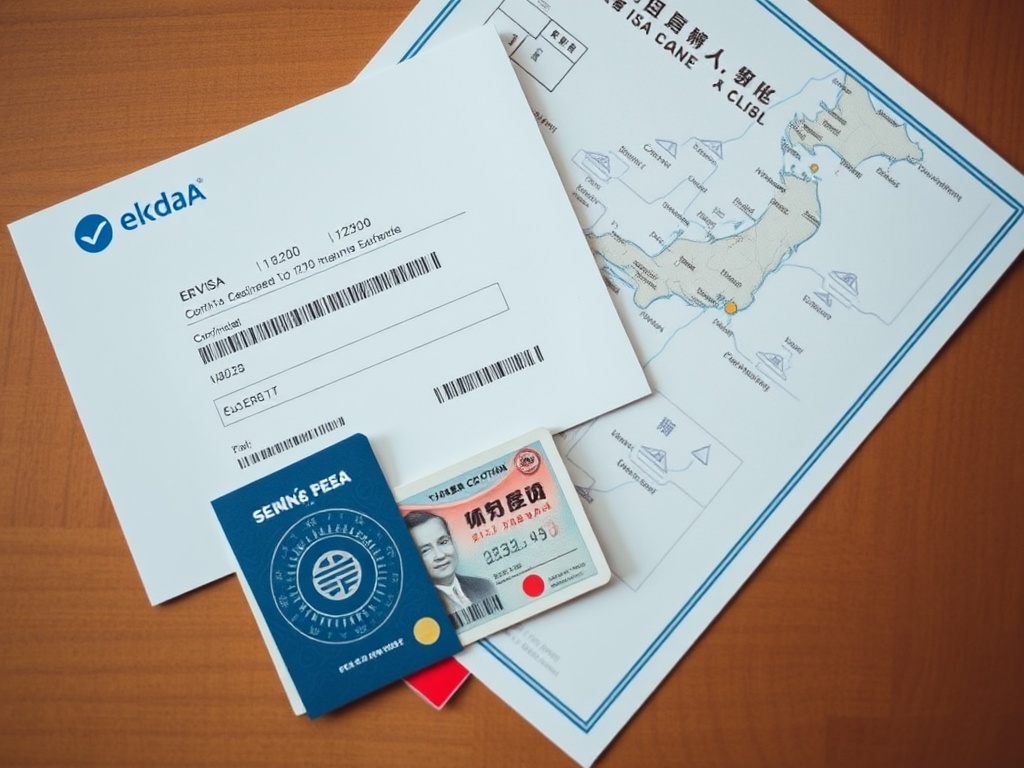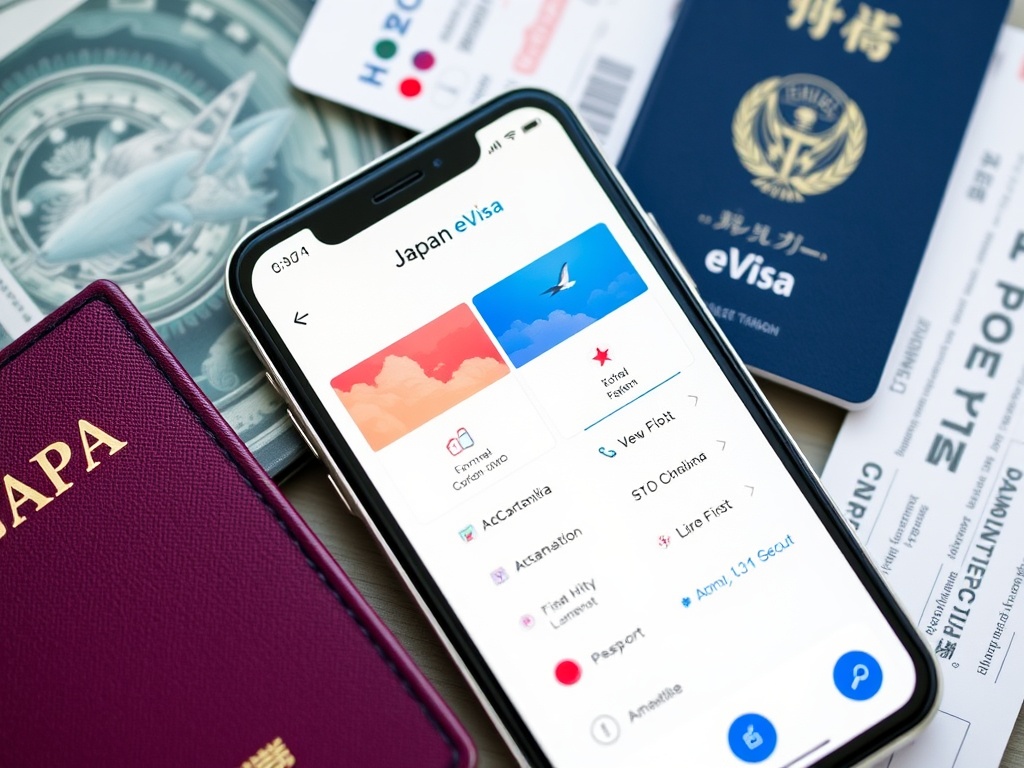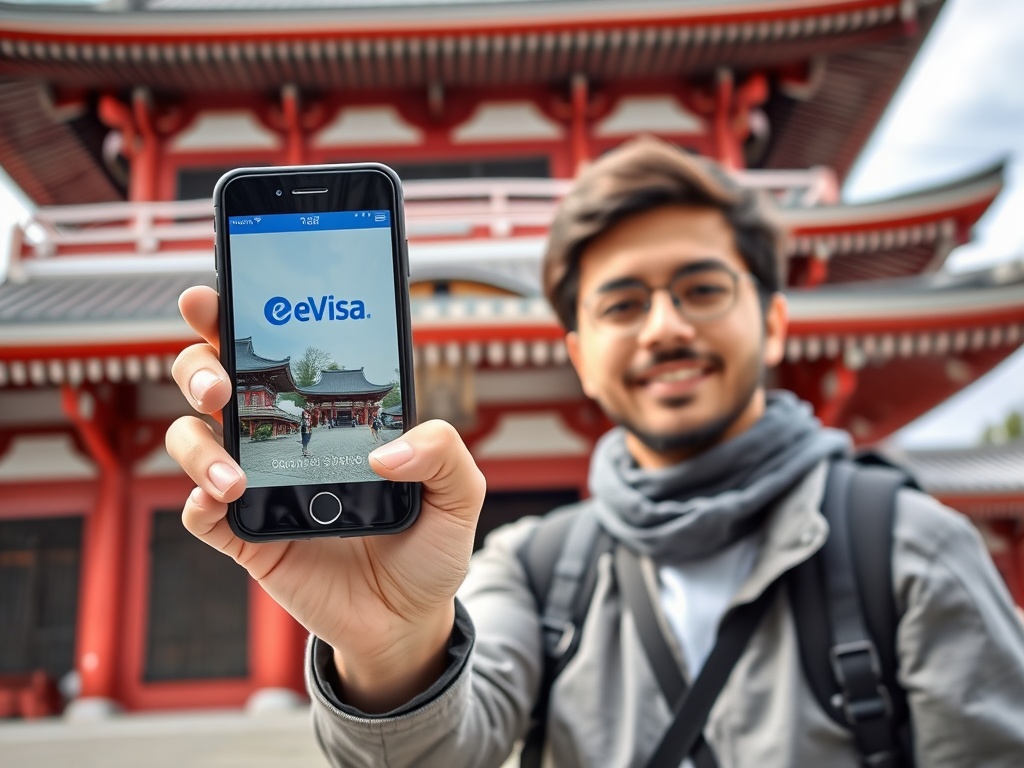Planning Your Trip to Japan
Win a Free Trip to Japan!
Experience cherry blossoms and ancient temples
Are you considering a trip to Japan? That’s fantastic! Japan is a country rich in culture, history, and stunning landscapes, and I have no doubt that you’ll experience something truly magical during your visit.
Excitingly, Japan has recently implemented a new system allowing visitors to apply for a tourist visa online, known as the Japan eVISA system. Previously, if you needed a tourist visa to enter Japan, you had to physically apply in person at the Embassy of Japan, which was often a time-consuming process. Thankfully, the option to apply online has made this much more convenient!
Before you know it, you could be admiring the majestic views of Mount Fuji! Below, I’ve outlined essential topics that will guide you through the eVisa application process:
- What is the Japan Tourist eVisa?
- Who can apply for the Japan eVisa?
- How much does it cost to apply for the Japan eVisa?
- How can I apply for the Japan eVisa?
- How long does it take for the Japan eVisa to be issued?
- When should I apply for the Japan eVisa?
- What should I do if my travel date to Japan is fast approaching but I still don’t have the eVisa?
What is the Japan Tourist eVisa?
The Japan eVisa functions similarly to the traditional short-term visa, permitting you to stay in Japan for up to 90 days for the purpose of tourism. This eVisa is valid for entry within 3 months from the date it is issued. For instance, if your visa is issued on January 20, it will be valid until April 20. If you enter Japan on April 19, you can stay until July 18.
Do keep in mind that the eVisa allows for a single entry only. If you wish to obtain a multiple-entry visa, you will still need to schedule an appointment at the Japanese embassy and apply in person.
Who Can Apply for the Japan eVisa?
As of this writing, residents (not to be confused with citizens) of the following 10 countries who are required to obtain a short-term visa to visit Japan are eligible to apply for the Japan eVisa:
Australia, Brazil, Cambodia, Canada, Saudi Arabia, Singapore, South Africa, Taiwan, United Kingdom, U.S.A.
Note: This list is subject to change, so it is advisable to check the latest updates from the Ministry of Foreign Affairs (MoFA) of Japan.
It’s important to emphasize the word residents here. This means you need to be a legal resident of one of these countries, not necessarily a citizen or passport holder. For example, if you hold a Singaporean passport, you do not need to apply for a visa to Japan. However, an Indonesian passport holder who is legally residing in Singapore (such as on a work visa or permanent residency) can apply for the eVisa since Singapore is on the list. Conversely, if you are an Indonesian passport holder living in Indonesia, you must apply for your visa through the embassy.
How Much Does It Cost to Apply for the Japan eVisa?
The cost to obtain a Japan visa is typically 3,000 yen. However, this fee may vary based on agreements between Japan and your country of passport. Some countries may be exempt from visa fees, including the eVisa fees.
Visa Fees: For more detailed information regarding visa fees, please consult the website of the Embassy of Japan in your respective country. For instance, you can find the visa fees listed on the Embassy of Japan in Singapore’s website.
How Can I Apply for the Japan eVisa?
The application process for the eVisa has become quite straightforward! Here’s a step-by-step guide to help you:
Step 1: Understand the Purpose of the Japan eVisa
First, familiarize yourself with the Japan eVisa system by visiting their official website. The eVisa is currently available only for single-entry tourism and permits a maximum stay of 90 days. If you need a multiple-entry visa or plan to stay longer than 90 days for reasons other than tourism, you will need to schedule an appointment at the embassy and apply in person.
Step 2: Prepare Necessary Documents
Once you decide to apply electronically, gather the required documents:
- Passport Photo: A recent passport photo with a plain background. A white background is generally acceptable.
- Passport Biodata: A scanned copy or photo of your passport biodata page.
- Government-issued ID: A scanned copy of your government-issued identification.
- Flight Itinerary: Obtain this from the airline upon booking your flight.
- Schedule of Stay: Detail your planned daily activities and itinerary in Japan. Use the provided template and be as thorough as possible, even if some plans are tentative.
- Financial Proof: Documentation to demonstrate your ability to cover travel expenses, usually in the form of a bank statement or income tax assessment.
- Certificate of Employment: This should be issued by your employer; your HR department can assist you with this.
Ensure all documents are scanned and saved as PDF files on your device. Other formats like JPG, BMP, GIF, and HEIC are also accepted.
Step 3: Create an Account on the eVisa Portal
Once you have all your documents ready, head over to the Japan eVisa portal and create an account. You’ll need to provide an email address and create a password. It’s crucial to keep this information safe, as you’ll need it to check your visa status later. Each time you log in, an authentication code will be sent to your email, so use an email address you can access easily.
Step 4: Submit Your Application
After creating your account, log in to the eVisa portal and select “New Registration.” Fill in the required form and upload the documents prepared in Step 2. Generally, the document upload process is smooth.
Step 5: Monitor Your eVisa Application Status
Once your application has been submitted, you can track its status in the Japan eVisa portal using the credentials you created earlier. After submission, check the “Visa Application List” menu. Be attentive to any emails requesting additional documents. In my case, the authorities requested more details on my Schedule of Stay, so I ensured to include comprehensive information on my plans.
Step 6: Make the Visa Fee Payment (if required)
After your eVisa is issued, you’ll receive an email notification. Log back into the eVisa portal to follow the instructions for payment. Visa fees may vary based on the passport you hold.
Step 7: Download the Visa Issuance Notice
Once payment is confirmed, you can download your visa issuance notice from the eVisa portal. Simply tick the checkbox next to your visa application and click the “Visa Issuance Notice (pdf)” button at the bottom.
And that’s it! Remember to fill out the Visit Japan Web form a few days before your trip, and you’ll be well-prepared for your journey to Japan. You can either print the PDF or keep a copy on your phone for easy access when needed.
How Long Does It Take for the Japan eVisa to Be Issued?
The processing time may vary based on several factors, including your situation, the volume of applications, and your passport type.
From my experience applying from Singapore in October 2023, here’s the timeline from application to approval:
| Date | Status Update |
|---|---|
| 7 October | Applied for the Japan eVisa online (Status: Temporarily Received) |
| 18 October | Received an email requesting additional documents. They wanted more detail in my Schedule of Stay (Status: Under Examination) |
| 19 October | Additional documents acknowledged. |
| 24 October | eVisa issued! |
In total, it took approximately 17 days (or 12 business days) to receive my eVisa. I was quite anxious during the wait, especially since my application status remained unchanged for 11 days. Just as I was about to inquire about my application, I received a request for additional documentation. After resubmitting, it took only 5 business days for the eVisa to be issued.
This processing time is longer than the previous procedure, which typically took only 5 business days. Nevertheless, the convenience of not having to visit the embassy made the wait worthwhile, even if the uncertainty was a bit nerve-wracking.
When Should I Apply for the Japan eVisa?
Given the potential for longer wait times during peak travel seasons, it is advisable to apply for your eVisa at least 2 months prior to your intended travel date. This is especially important during popular times, such as cherry blossom season or school holidays.
The eVisa is valid for entry within 3 months from its issue date, so you could even apply up to 3 months in advance of your trip.
What Should I Do If My Travel Date is Approaching and I Still Don’t Have the eVisa?
If your travel date is fast approaching and your eVisa has yet to be issued, consider the following options:
1. Apply for a Japan Visa In-Person at the Embassy
The experience of applying for a visa at the embassy varies by country, and I can only share my experience as a resident in Singapore. I’ve visited the Japan embassy in Singapore numerous times over the past decade!
I’ve detailed my experience with the Japan visa application process at the Embassy of Japan in Singapore in a separate post. You can find tips on how to secure an appointment there.
2. Engage a Travel Agent
If you’re unable to secure an embassy appointment, you might consider hiring a travel agent to assist with your visa application. While I haven’t used this service personally, I have friends who have successfully obtained their visas through travel agencies like JA Travel, which charge around S$120. They can help expedite the process, but you will still need to prepare the necessary documents.
Keep in mind that the agency will also need about 5 business days to process your visa, as they will effectively be pre-checking your documents and submitting them on your behalf. This could be a viable option when time is of the essence.
That’s all I have to share about applying for the Japan eVisa! If you have any questions or want to share your own experiences with the eVisa application process, please feel free to leave a comment below. Your insights could be incredibly helpful for fellow travelers!
Are you planning a trip to Japan? I’ve written extensively about this beautiful country. Be sure to explore the ‘Japan’ category on my blog for plenty of travel inspiration!




